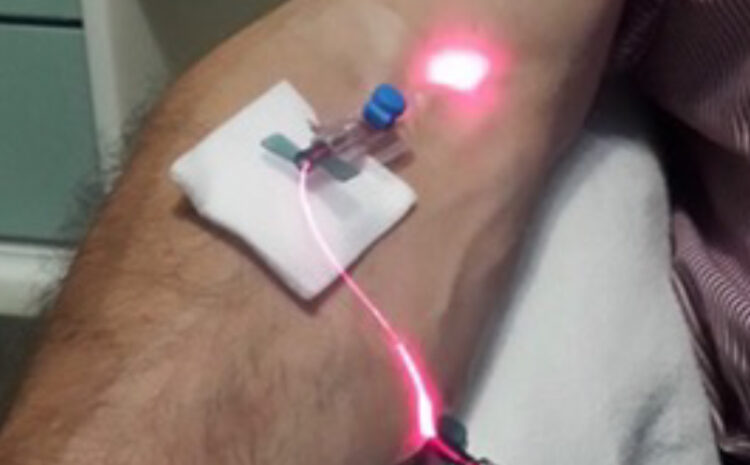
Germany, Thailand, Bangladesh, South Korea, Vietnam, Taiwan
Prof. Dr. Michael W. Trogisch
CEO and Founder
Studies show significant therapy effects of PDT laser therapy, stabilization and energizing effects and improvement of laboratory values and many other positive effects on often intractable diseases.
The intravenous laser blood irradiation was accomplished for the first time approximately 25 years ago in the former Soviet Union. Laser light was brought directly into the flowing blood through a one-way-catheter. By various in-vitro-tests before it could be verified that biological soft laser irradiation of white blood cells caused various positive effects, in particular expression of immunoglobulins, interferons and interleukins. After the introduction of the new method various clinical studies were published, showing additional effects on various metabolic pathways.
The development and certification of a new intravenous laser blood irradiation device in 2005 in the research support program Biophotonik II of the government of Niedersachsen opened for the first time the possibility in Germany to check the new therapy in clinical studies.
In own researches the results of the Russian studies could be confirmed to a large extent. Nearly all treated patients described general stabilization and increased energy while positive effects on chronic liver diseases, diabetes mellitus, metabolism disorders and other various diseases could be proven.
While the studies from Russia were all done only with red laser, the additional use of green, blue and infrared lasers today increased the effects substantially.

General Effects
- Significant improvement in overall performance
- Improvement in sleep and vigilance
- Positive effect on the general mood
- Reduction of drug consumption
Special Effects
- Optimization of the diabetic metabolic state.
- State incomparable influence of hypercholesterolemia.
- Significant reduction of pathologically elevated liver values.
- Reduction in frequency of relapses in chronic inflammatory bowel disease.
- Improvement in general health status and mobility in MS disease.
- Positive influence on intractable pain syndromes.
- Positive influence of tinnitus.
- Reduction of antihypertensive medication for severe hypertension.

